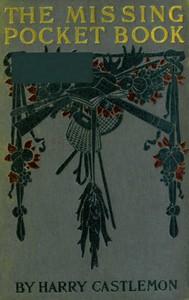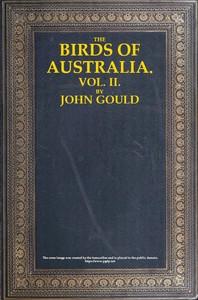Read this ebook for free! No credit card needed, absolutely nothing to pay.
Words: 74639 in 34 pages
This is an ebook sharing website. You can read the uploaded ebooks for free here. No credit cards needed, nothing to pay. If you want to own a digital copy of the ebook, or want to read offline with your favorite ebook-reader, then you can choose to buy and download the ebook.


: The Missing Pocket-Book; Or Tom Mason's Luck by Castlemon Harry White George G George Gorgas Illustrator - Conduct of life Juvenile fiction; Adventure stories; Friendship Juvenile fiction; Indians of North America Juvenile fiction; Voyages and travels Juve
THE MISSING POCKET-BOOK; OR, TOM MASON'S LUCK.
CATTLEMEN AND FARMERS READY FOR WAR.
FORT WORTH, August 5, 18--. One hundred and seventy-five thousand head of cattle are being slowly drifted and driven from the drought-parched sections of Northwestern Texas into Jacks County, along the waters of the West Fork of Trinity. The herders who accompany them demand that they must have grass and water, or blood. The farmers, who will be greatly damaged by the passage of these immense herds, are arming and say the cattle shall not come in--that they must be driven back at all hazards. To permit them to pass means fences destroyed, crops ruined, and the meagre supply of water exhausted; to turn them back means death to the cattle and financial disaster to the men who own them. To-day the news was carried from house to house, and the farmers are turning out to a man, resolved to rendezvous on Bear Creek and forbid the driving of the cattle through their lands. Large squads have gone to the front, and they are well-armed and desperate. Sheriff Reins will be on hand to-morrow, and so will a company of militia under command of Captain Fuller. Several conflicts, involving the loss of six or seven lives, have already taken place between the cattlemen and the farmers, the particulars of which have not yet found publicity.
Of all the boys into whose hands this story may fall, and who make it a point to read the daily papers, I venture to say that not one in a hundred will remember that he ever saw the above despatch, which was flashed over the wires one bright summer morning a few years ago; but if those boys had been on the ground as I was, and witnessed the thrilling and affecting scenes that transpired before and after that despatch was written, they would have seen some things that time could never efface from their memories.
If ever I saw suffering cattle or determined, almost desperate, men, who were fairly spoiling for a fight, it was on that sweltering August day when a big brown-whiskered man, a wealthy farmer of Jacks County, accompanied by the sheriff and two deputies, rode up to the wagon and demanded to see "the boss." Around the wagon were gathered a weary and dusty party of men and boys, who had come there to slake their thirst, and John Chisholm, the man to whose enterprise and push the great Texas cattle trade owed its existence, was just raising a cup of the precious fluid to his lips. I say "precious" because our supply was limited, and the nearest stream far away.
"It tastes as though it had been boiled for a week," said he, after he had moistened his parched mouth, "but every drop of it is worth its weight in gold. Touch it lightly, boys, for there is no telling when we shall be able to fill the cask again. Have any of the scouts come in yet? If we don't find a pool pretty soon we shall all be ruined. Just see there!" he added, waving his hand toward the back trail. "A blind man could easily follow our route, for every rod of it is marked with dead beeves."
It would have taken something besides a "pool" of water to quench the thirst of that multitude of cattle, which were drifting along a mile or so in advance of the wagon, almost concealed by the suffocating cloud of dust that hung over them and pointed out their line of travel. Just how many of them there were in the herd the most experienced cattleman could not guess, for the flanks of the drove as well as its leading members were far out of sight. There were more than a dozen outfits mixed up together, no attempt having been made to keep them apart; nor was there any effort made to control their movements beyond keeping them headed toward the West Fork of Trinity, the nearest point at which water could be obtained. The suffering beasts complained piteously as they plodded along, and now and then deep mutterings of challenge and defiance, followed by a commotion somewhere in the herd, would indicate the spot where perhaps a dozen of the half maddened animals had closed in deadly combat. It was little wonder that the sixty bronzed and weather-beaten men who accompanied them were in fighting humor, and ready to resist to the death any interference with their efforts to find water or grass. They were almost consumed with thirst themselves. Every drop of water they drank was brought along in the wagon, and there was so little of it that no one thought of taking more than a swallow at a time. Scouts had been sent out early in the morning with instructions to search everywhere for a water-course, and it was as Mr. Chisholm enquired about them, and handed back the cup he had drained, that the sheriff rode up and asked to see "the boss."
"'Pears to me as if this outfit was bossing itself," replied Mr. Chisholm, facing about in his saddle and looking sharply at the newcomers. "You can see for yourself, without looking, that all we can do is to keep the critters pointed toward the West Fork. But you don't belong on our side of the house. Where might you hail from?"
"I am sheriff of this county, and came out to tell you that you must not trespass on the grounds of our farmers," answered the officer.
"Well, then, what do you come to us for?" enquired Mr. Chisholm, while the men around him scowled savagely and played with the locks of their rifles. "Go and serve your warning on the critters. Can't you see that some of them are miles ahead of us? How are we going to turn them back when our horses are nigh about as ready to drop as the cattle are? I tell you it can't be done!"
"Don't you know it means ruin to us farmers if we allow those famishing cattle to get into our fields?" demanded the brown-whiskered man, who seemed quite as ready and willing to fight as the cattlemen were. "They will break down our fences and eat up the very crops on which our lives depend. Besides, there are no more grass and water in the country than we want ourselves."
"I'm powerful sorry to hear you say that, but I don't see what we are going to do about it," said Mr. Chisholm. "We've got to go somewhere now that we have started."
Free books android app tbrJar TBR JAR Read Free books online gutenberg
More posts by @FreeBooks








